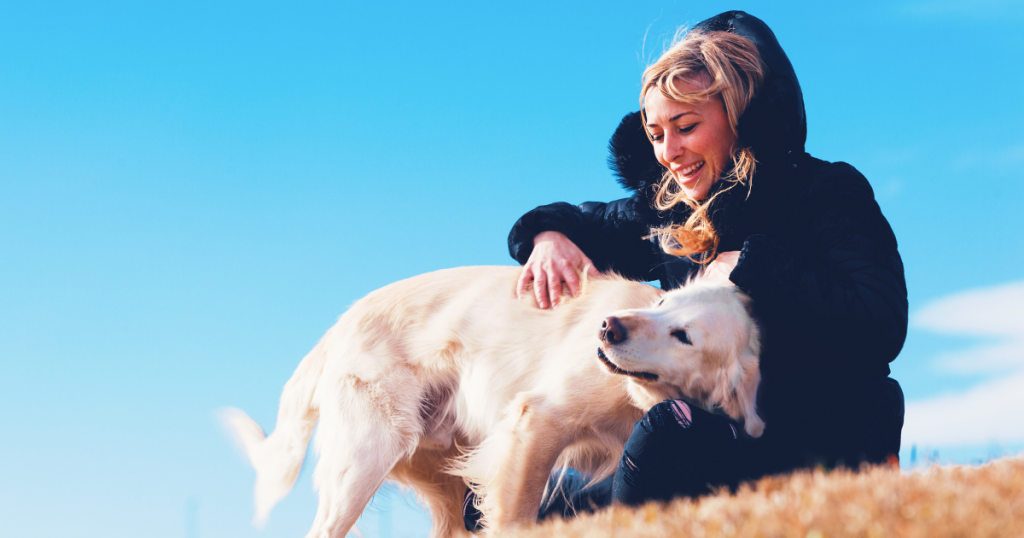
Decoding Head Pressing in Dogs: Signs & Solutions
Posted Jun 3, 2024 in Health & Safety
Our canine companions communicate with us in countless ways, from joyful tail wags to soulful gazes! However, some behaviors can be puzzling or even concerning. One such behavior is head pressing. If you’ve noticed your dog pressing its head against walls, furniture, or other objects, it’s essential to understand the underlying causes and find appropriate solutions!

What is Head Pressing?
Head pressing is when a dog continuously presses its head against a hard surface for no apparent reason. Unlike playful nudging or pushing against your legs, head pressing is often persistent and almost involuntary. This behavior can be alarming to pet owners, but it’s crucial to recognize that it frequently signals an underlying health issue.
Common Causes of Head Pressing
Neurological Problems
One of the primary reasons for head pressing is a neurological condition. This includes issues such as brain tumors, inflammatory diseases, or infections like encephalitis. These conditions affect the brain and can lead to abnormal behaviors, including head pressing.
Toxicity
Exposure to certain toxins, such as lead or chemicals found in some household products, can lead to poisoning and neurological symptoms, including head pressing. Dogs are naturally curious and may ingest harmful substances accidentally.
Liver Disease
Liver dysfunction, such as hepatic encephalopathy, can cause a buildup of toxins in the bloodstream, which affects brain function. This condition often leads to neurological symptoms like head pressing, confusion, and disorientation.
Metabolic Disorders
Hypoglycemia (low blood sugar) or hypernatremia (high sodium levels) can disrupt normal brain function, resulting in behaviors like head pressing. These metabolic imbalances need immediate veterinary attention.
Head Trauma
Previous injuries to the head can cause lingering effects that might manifest as head pressing. Trauma can lead to swelling or damage to the brain, resulting in various neurological symptoms.
Recognizing the Signs
Head pressing is a noticeable and concerning symptom, but it often accompanies other signs that indicate a problem. Look out for these additional symptoms:
Circling or pacing: Repetitive movements or walking in circles.
Vision problems: Bumping into objects or appearing disoriented.
Seizures: Uncontrolled shaking or convulsions.
Behavioral changes: Increased irritability, confusion, or lethargy.
Gait abnormalities: Difficulty walking or unsteady movements.
What to Do If Your Dog Is Head Pressing
Seek Veterinary Care Immediately
Head pressing is a severe symptom that requires prompt veterinary attention. Your vet will conduct a thorough examination, including blood tests, imaging studies (MRI or CT scans), and possibly a neurological evaluation to determine the cause.
Keep Your Dog Safe
While waiting for veterinary care, ensure your dog is safe. Prevent them from injuring themselves by removing any sharp or hard objects they might press their head against. Keep them in a quiet, comfortable environment to minimize stress.
Follow the Treatment Plan
Once a diagnosis is made, follow your veterinarian’s plan meticulously. Treatment may involve medications, dietary changes, or, in some cases, surgery. Managing the underlying cause is crucial for alleviating the head-pressing behavior.
Preventive Measures
While not all causes of head pressing can be prevented, there are steps you can take to reduce the risk:
Regular check-ups: Ensure your dog has routine veterinary visits to catch any potential health issues early.
Safe environment: Keep hazardous substances out of reach and create a safe living space for your dog.
Healthy diet: Provide a balanced diet to prevent metabolic disorders and support overall health.
If you notice this behavior, consult your veterinarian and stay vigilant to ensure your furry friend remains happy and healthy! Your dog relies on you to interpret signals and seek help when needed. By staying informed and proactive, you can ensure it receives the care it deserves, keeping its tail wagging for years!
Check out these related dog blogs for more health & safety tips!
Tips for Helping Your Senior Dog Stay Mentally Sharp